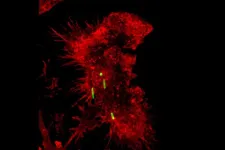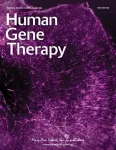(Press-News.org) In a new study co-led by investigators at the United States Department of Veterans Affairs and Brigham and Women’s Hospital, a founding member of the Mass General Brigham healthcare system, a global team of scientists conducted one of the largest genetic association studies on heart failure to date. Using genomic data from over 90,000 heart failure patients and more than a million controls, the team identified 39 genetic mutations associated with heart failure, 18 of which had not been reported previously.
The researchers also pinpointed seven druggable proteins that, when targeted with specially designed medications, may prevent heart failure’s onset. They say their overall findings, published today in Nature Communications, could one day help physicians identify and treat at-risk patients before heart failure occurs.
“Our study provides a better understanding of disease etiology, identifies causal pathways, and pinpoints potential drug targets for the primary prevention of heart failure,” said lead author Danielle Rasooly, PhD, a research associate in the Brigham’s Department of Medicine. Rasooly is also an investigator for the VA’s Million Veteran Program.
Heart failure affects over 60 million people worldwide and 6 million people in the United States, costing the American healthcare system over 30 billion dollars every year. Patients diagnosed with heart failure have an estimated five-year survival rate of 50%, which has pressed scientists to better understand the environmental and genetic risk factors associated with heart failure.
Although several studies in the past decade have used advanced computing techniques to identify genetic risk factors for heart failure, scientists have wondered if their limited sample sizes have allowed some unidentified mutations to slip through the cracks. Genome-Wide Association Studies (GWAS), which look for differences in the DNA of patients with diseases and healthy controls, are only as comprehensive as the datasets they’re built on. GWAS with larger sample sizes have more statistical power, meaning they’re able to find mutations that smaller-cohort studies may miss.
The team built their large cohort by gathering genomes from two established genomic research programs. The Million Veteran Program (MVP), a national effort launched in 2011 to examine the long-term health outcomes of United States Veterans, provided 302,287 genomes for the study. Heart failure is a particular concern for veterans, with some studies showing that they may be at a higher risk of developing heart disease. To date, over 950,000 veterans have enrolled in MVP.
“We want to thank all the veterans who have taken part in the MVP and allowed us to study how genes affect heart failure,” Rasooly said.
The remaining 977,323 genomes were pulled from the Heart Failure Molecular Epidemiology for Therapeutic Targets (HERMES) consortium, which includes data from patients across several European countries. In total, the team analyzed 1,279,610 genome samples, 90,653 of which belonged to patients with heart failure.
Such a large dataset allowed Brigham and Veterans Association researchers to uncover 38 genetic mutants, or variants, that were associated with the presence of heart failure. Eighteen of those variants had not been previously reported as heart failure risk factors by smaller GWAS studies.
Investigators then conducted a technique called Mendelian randomization, which computationally simulates how certain interventions may affect disease outcomes. They searched for the genetic signatures of proteins that, when either increased or decreased in individuals in their dataset, led to lower risk of heart failure. Their approach heralded seven druggable proteins among nearly 5,000 candidates that they believe can be targeted to lower an individual's risk of developing heart disease.
The team says that their findings, coupled with future analyses to better understand the genetic determinants of heart failure, could one day empower physicians to predict whether a patient’s unique genetic profile puts them at higher odds of developing heart failure during their lifetime. Drugmakers could also use the team’s research to narrow down which proteins they should target in order to build drugs that minimize the risk of developing heart failure.
“It’s well known that over 95% of clinical trials fail, and I think the techniques we leverage in this study can decrease this failure rate,” Rasooly said. “Drug targets identified through genetics have at least twice the odds of success in drug discovery.”
Disclosures: The authors declare no competing interests.
Funding: This research is supported by funding from the Department of Veterans Affairs Office of Research and Development, Million Veteran Program (Grant I01-CX001737 and I01-BX004821). The authors also acknowledge the VA Merit Grant I01-CX001025.
Paper cited: Rasooly D et al. “Genome-wide association analysis and Mendelian randomization proteomics identify drug targets for heart failure” Nature Communications DOI: 10.1038/s41467-023-39253-3
END
Study uncovers genetic risk factors for heart failure
The project, co-led by investigators at the Brigham and the VA, is one of the largest genetic association studies on heart failure to date; findings pinpoint druggable proteins for possible treatment and could help identify those who are at risk
2023-08-24
ELSE PRESS RELEASES FROM THIS DATE:
Training immune cells to remove ‘trash’ helps resolve lung inflammation
2023-08-24
Inflammation is a standard part of our bodies’ immune system response. But sometimes this response becomes hyperactivated in our lungs, causing inflammation to continue unchecked, which can be fatal. Many deaths from COVID-19 have been due to excessive inflammation, which results in acute lung injury.
A group of researchers at the University of Illinois Chicago have investigated how lungs counterbalance inflammation. Their work points to cells in the lung that reduce inflammation by removing ...
A new pathway to regenerate myelin discovered
2023-08-24
A study led by Dr. Hyun Kyoung Lee, associate professor at Baylor College of Medicine and investigator at the Jan and Dan Duncan Neurological Research Institute at Texas Children’s Hospital, has discovered a new biological mechanism to regenerate and repair myelin, a protective sheath that insulates neuronal fibers and plays a vital role in ensuring rapid and accurate neurotransmission. The Duncan NRI team found novel roles for the Dishevelled associated activator of morphogenesis 2 (Daam2) protein and CK2α kinase in regulating myelin repair and regeneration. The study was published in the Proceedings of the National ...
Monell Center helps discover epigenetic mechanism that causes bitter taste distortion
2023-08-24
PHILADELPHIA (August 24, 2023) – A bitter taste in the mouth is often a symptom or side effect of illness, which may be the result of how the body reacts to pathogens. A new study published in iScience, by Hong Wang, PhD, an Associate Member at the Monell Chemical Sense Center, and colleagues sheds light on the mechanisms involved in the complex interplay between taste perception and immune function. Their work also highlights the potential of a sequencing tool for investigating epigenetic mechanisms that affect taste-cell gene expression. Epigenetics is the study of how and when genes are expressed rather than alteration of the genetic ...
Gene therapy targeting the brain vasculature
2023-08-24
Researchers have developed an engineered adeno-associated virus (AAV) vector that yields high transduction of brain vascular pericytes and smooth muscle cells. The study describing the characterization of this novel AAV capsid is published in the peer-reviewed journal Human Gene Therapy. Click here to read the article now.
In the current study, Servio Ramirez, from Temple University School of Medicine, Patricia Musolino, from Massachusetts General Hospital, and Casey Maguire, from Harvard Medical School, and coauthors, characterize AAV-PR, the capsid that demonstrated high transduction of the brain vasculature. AAV-PR offers the ...
Overlooked part of brain could play critical role in addiction recovery
2023-08-24
INDIANAPOLIS—Researchers from Indiana University School of Medicine have discovered a neglected brain region that could play a critical role in how likely a person with drug use disorders is to relapse, even after a long withdrawal period. Their findings were published recently in Biological Psychiatry.
“Past studies in the field of addiction research have focused on the medial prefrontal cortex, which is the part of the brain that controls decision making, but no effective prevention or treatment for drug relapse is available,” said Yao-Ying Ma, MD, PhD, associate professor of pharmacology ...
Metabolite in urine predicts diabetic kidney failure 5-10 years early; oral therapeutic drug shows promise in mice
2023-08-24
SAN ANTONIO (Aug. 24, 2023) — Urine levels of adenine, a metabolite produced in the kidney, are predictive and a causative biomarker of looming progressive kidney failure in patients with diabetes, a finding that could lead to earlier diagnosis and intervention, researchers from The University of Texas Health Science Center at San Antonio (also called UT Health San Antonio) reported Aug. 24 in the Journal of Clinical Investigation.
Elevated adenine was also associated with all-cause mortality.
The study results are significant because until now, the most important ...
Math enables blending hydrogen in natural gas pipelines
2023-08-24
LOS ALAMOS, N.M., Aug. 23, 2023 — Mathematical modeling can show how to safely blend hydrogen with natural gas for transport in existing pipeline systems. A secure and reliable transition to hydrogen is one of the proposed solutions for the shift to a net-zero-carbon economy.
“Mixing hydrogen into a natural gas pipeline changes how the gases flow, which will create new conditions for operators,” said Anatoly Zlotnik, a co-author of a new paper on the modeling in the journal PRX Energy. ...
AI: ChatGPT can outperform university students at writing assignments
2023-08-24
ChatGPT may match or even exceed the average grade of university students when answering assessment questions across a range of subjects including computer science, political studies, engineering, and psychology, reports a paper published in Scientific Reports. The research also found that almost three-quarters of students surveyed would use ChatGPT to help with their assignments, despite many educators considering its use to be plagiarism.
To investigate how ChatGPT performed when writing university assessments compared to students, Talal Rahwan and Yasir Zaki invited faculty members who taught32 different courses at ...
Climate change: Emperor penguin breeding fails due to Antarctic sea ice loss
2023-08-24
Four out of five emperor penguin colonies in the Bellingshausen Sea, Antarctica, saw no chicks survive to fledge successfully in the spring of 2022, reports a study published in Communications Earth & Environment. The study suggests that this complete breeding failure is a direct consequence of the unprecedented loss of sea ice recorded in the region in recent years due to climate change.
Emperor penguin (Aptenodytes forsteri) colonies generally need stable ice attached to the land between April and January to ensure successful breeding and moulting. Any change in the extent of the Antarctic sea ice can affect their ...
Mysterious Neptune dark spot detected from Earth for the first time
2023-08-24
Using ESO’s Very Large Telescope (VLT), astronomers have observed a large dark spot in Neptune’s atmosphere, with an unexpected smaller bright spot adjacent to it. This is the first time a dark spot on the planet has ever been observed with a telescope on Earth. These occasional features in the blue background of Neptune’s atmosphere are a mystery to astronomers, and the new results provide further clues as to their nature and origin.
Large spots are common features in the atmospheres of giant planets, the most famous being Jupiter’s Great Red Spot. On Neptune, a dark spot was first discovered by NASA’s Voyager 2 in ...
LAST 30 PRESS RELEASES:
Celebrity dolphin of Venice doesn’t need special protection – except from humans
Tulane study reveals key differences in long-term brain effects of COVID-19 and flu
The long standing commercialization challenge of lithium batteries, often called the dream battery, has been solved.
New method to remove toxic PFAS chemicals from water
The nanozymes hypothesis of the origin of life (on Earth) proposed
Microalgae-derived biochar enables fast, low-cost detection of hydrogen peroxide
Researchers highlight promise of biochar composites for sustainable 3D printing
Machine learning helps design low-cost biochar to fight phosphorus pollution in lakes
Urine tests confirm alcohol consumption in wild African chimpanzees
Barshop Institute to receive up to $38 million from ARPA-H, anchoring UT San Antonio as a national leader in aging and healthy longevity science
Anion-cation synergistic additives solve the "performance triangle" problem in zinc-iodine batteries
Ancient diets reveal surprising survival strategies in prehistoric Poland
Pre-pregnancy parental overweight/obesity linked to next generation’s heightened fatty liver disease risk
Obstructive sleep apnoea may cost UK + US economies billions in lost productivity
Guidelines set new playbook for pediatric clinical trial reporting
Adolescent cannabis use may follow the same pattern as alcohol use
Lifespan-extending treatments increase variation in age at time of death
From ancient myths to ‘Indo-manga’: Artists in the Global South are reframing the comic
Putting some ‘muscle’ into material design
House fires release harmful compounds into the air
Novel structural insights into Phytophthora effectors challenge long-held assumptions in plant pathology
Q&A: Researchers discuss potential solutions for the feedback loop affecting scientific publishing
A new ecological model highlights how fluctuating environments push microbes to work together
Chapman University researcher warns of structural risks at Grand Renaissance Dam putting property and lives in danger
Courtship is complicated, even in fruit flies
Columbia announces ARPA-H contract to advance science of healthy aging
New NYUAD study reveals hidden stress facing coral reef fish in the Arabian Gulf
36 months later: Distance learning in the wake of COVID-19
Blaming beavers for flood damage is bad policy and bad science, Concordia research shows
The new ‘forever’ contaminant? SFU study raises alarm on marine fiberglass pollution
[Press-News.org] Study uncovers genetic risk factors for heart failureThe project, co-led by investigators at the Brigham and the VA, is one of the largest genetic association studies on heart failure to date; findings pinpoint druggable proteins for possible treatment and could help identify those who are at risk


